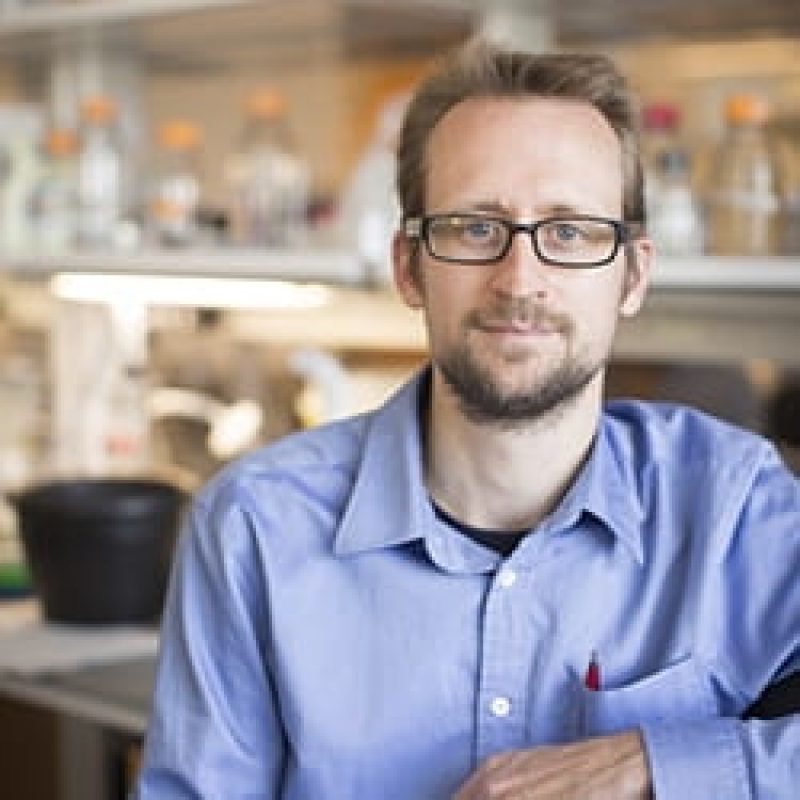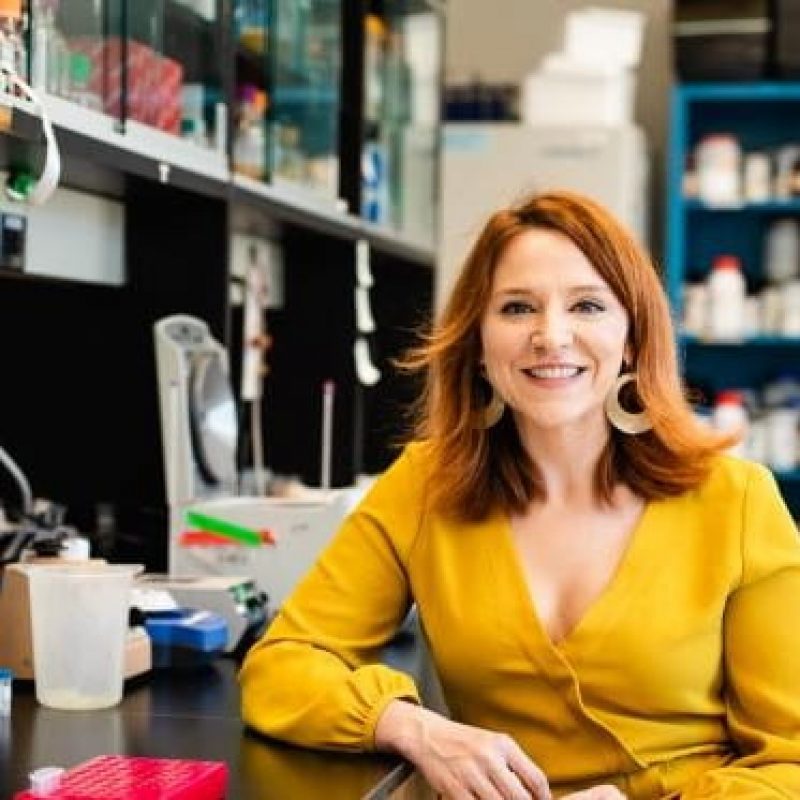Tag: Microbiota and Microbiomes
-

Michelle Heck
Our research uses a combination of molecular, genetic, and proteomics approaches to understand how insects transmit plant pathogens and how pathogens manipulate host plants to ensure replication and transmission. For instance, students will characterize the transmission rates of viruses by different genotypes of aphids in[...] -

Maria Harrison
Most flowering plants develop mutualistic symbioses with arbuscular mycorrhizal (AM) fungi to improve access to essential mineral nutrients. The fungal endosymbionts are housed in membrane-bound compartments within root cells. Our research combines genetic, genomic and cell biology approaches to dissect the plant and fungal cellular[...] -

Megan Greischar
Parasite life history strategies within the host, especially the timing of replication and transmission, influence disease severity and spread. I study how subtle differences in ecology within and outside the host can generate dramatic differences in parasite strategies. My research program uses two major approaches:[...] -

Tobias Dörr
We study how bacteria respond to and survive stressful conditions, particularly damage to the cell envelope. Students in the Doerr lab learn techniques ranging from microscopy and image analysis to molecular biology. The lab is very active with undergraduate research and has extensive experience in[...] -

Pamela Chang
Our research focuses primarily on three areas: We develop activity-based probes to understand the metabolic activity catalyzed by the gut microbiome during different disease states. We also characterize the small-molecule metabolites produced by the gut microbiota that regulate inflammation during inflammatory diseases and host defense[...] -

Clare Casteel
Numerous studies demonstrate that vector-borne pathogens influence host characteristics, resulting in altered host-vector interactions and enhanced transmission. We seek to determine the molecular mechanisms that underlie this phenomenon and use this knowledge to develop innovative control strategies using genetic and biochemical approaches. Current focuses are[...] -

Dan Buckley
My research program explores soil microbiome dynamics and their impacts on ecosystem and plant health. Students will use genomics and culture-based experiments to understand how soil bacteria response to plant root exudates. They will gain skills in microbiology and bioinformatics, and learn concepts in community[...] -

Nicolas Buchon
The Buchon lab focuses on the impact of pathogens and the microbiota on body homeostasis. We use systemic infection as a model for septicemia, and the gut response to infection as a model for mucosal immunity. Genomic and genetic approaches allow us to characterize new[...] -

Brito lab: HIPR-FISH paper in Nature
The Brito lab has published a paper in Nature in collaboration with the De Vlaminck Lab; “Highly multiplexed spatial mapping of microbial communities.” PAPER: https://www.nature.com/articles/s41586-020-2983-4
-

Ilana Brito
I study how microbes in the human microbiome are transmitted among individuals, using a wide range of approached including shotgun metagenomics of microbiome communities, culture-based methods, and single-cell analyses. Another main focus is horizontal transmission of genes between members of the microbiome, specifically focusing on[...]
